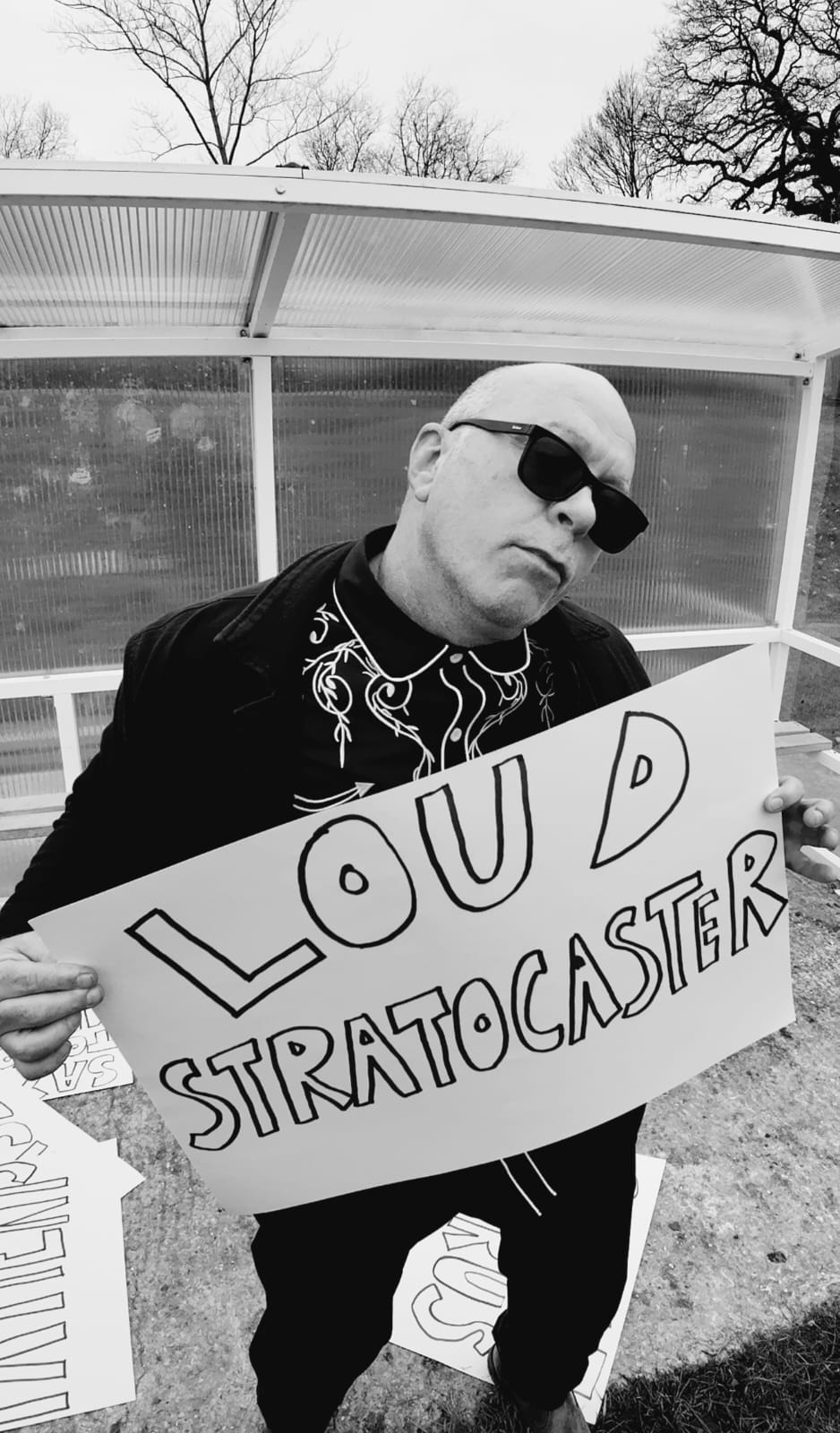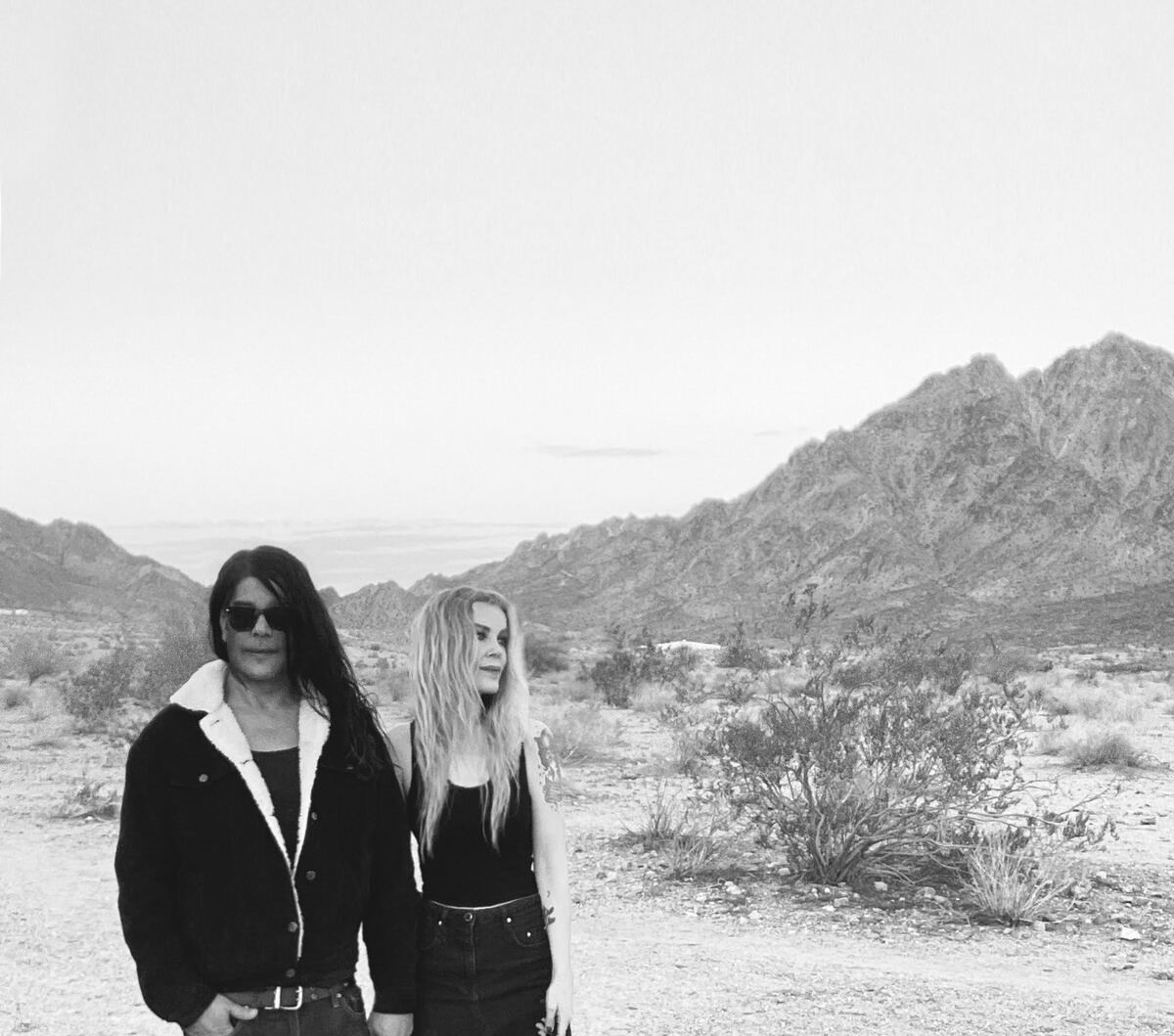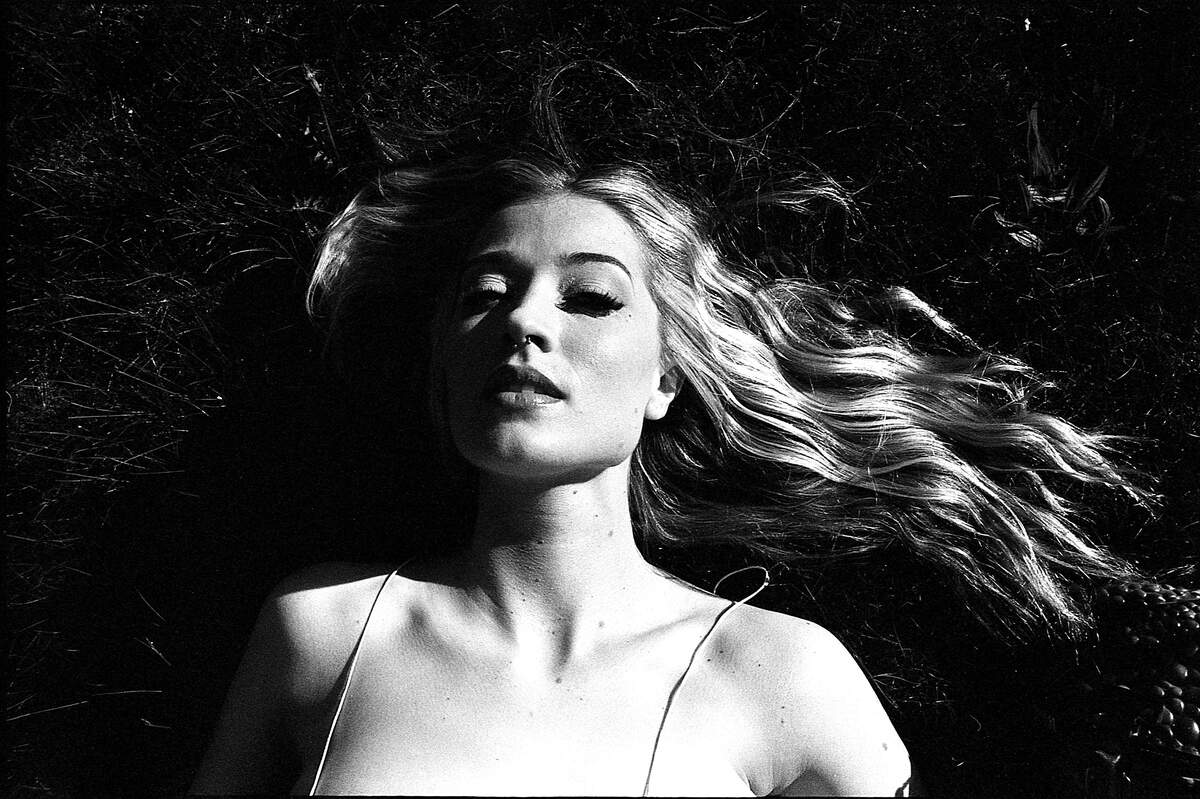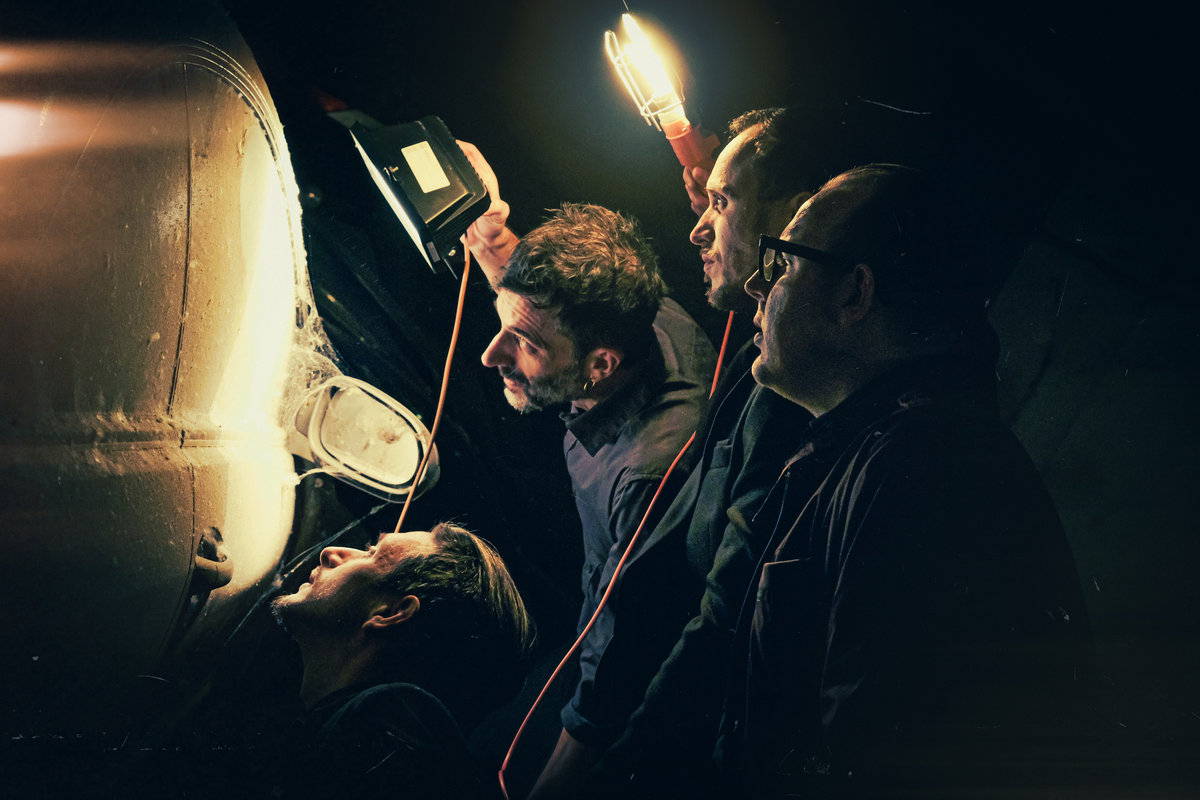Lo-Fi Experimental Shed Pop: From Submarine to Bad Generals – An Interview with Neil Haydock
Bad Generals is Neil Haydock’s latest project, a messy, melodic burst of what he calls “Lo-Fi Experimental Shed Pop.”
It seems that instinct, volume and whatever feels right is driving this project. “It could be 25 minutes of feedback and drones that get rid of your headache… or a Phil Spectory pop chorus,” he says. That offhand mix of hooks has followed him since the ’90s, when he fronted Submarine, the UK band that toured with Tool, Radiohead, and The Flaming Lips. (Tool once introduced them by yelling at the crowd to “shut the fuck up and LISTEN.”)
Their second album was shelved, shared as a bootleg, and ended up gaining cult status. “All over the shop, but good,” Haydock says. Since then, he’s burned through projects—Jetboy DC’s glam-punk roar, the scrappy charm of ‘Krautrock TV’—all linked by one thing: a love of the unexpected. “Whatever comes out, comes out,” he shrugs. Still chasing strange little moments that hit just right. The track is out via Jo Bartlett’s Indie Through The Looking Glass.
“Space in modern music is rare”
Neil, let’s dive straight in. Krautrock TV—it’s a departure from your earlier work. What sparked this shift in sound, and how did the idea of mixing krautrock vibes with your own flavour come about?
Neil Haydock: ‘Krautrock TV’ started life as a bassline, actually. I love records with basslines that never—or hardly ever—change throughout the whole thing. Things like ‘Papa Was a Rolling Stone by’ The Temptations, ‘For the Love of Money’ by The O’Jays… loads of the Bunnymen stuff is like that, and tons of great funk has a bassline that doesn’t quit. I liked the idea that it suggested forward movement to me, and I knew that if I put some Motorik-type drums on it, it would drive forward. So I did. The reason it’s called ‘Krautrock TV’ is that I recognised it sounded quite “Krautrocky,” and on the very first demo I sprayed tons of Richard Lloyd and Tom Verlaine-type guitars all over it. Because of that, the working title was Krautrock Television, which became Krautrock TV.
The track seems to channel a sense of space and experimentation. What role does improvisation play in the creative process for Bad Generals when working on new music?
Space in modern music is rare. Everything is recorded much louder than it was in the ’60s and ’70s. I don’t mean how hot it is going to tape (listen to any Little Richard record—they went down fucking HOT!). I’m talking about how in modern music there’s a preoccupation with filling every available frequency. I know ABBA started it, and their records still sound huge, but for me, I’d still rather listen to Muddy Waters and his little band recorded on one mic, all together in the same room… because you can feel and hear the space. It’s different.
Improvisation, for me, is crucial in the writing and recording processes. I’m always searching for sounds and parts that are interesting and not stock sounds on DAW software or plug-ins. I like records where you can’t be sure if a specific sound is this or that, and I like that Brian Wilson and Phil Spector would often have different instruments playing the same parts and sort of meld the two or three things together to create a unique sound. I experiment with that a lot. I usually know what sound I want from a guitar, though, and once I’ve got that and I like it, that gives me the confidence and freedom to experiment. Sometimes I’ll write a specific guitar part, but mostly I improvise. ‘Krautrock TV’ has lots of both types of playing on it.
There’s something almost cinematic about Krautrock TV. If you had to pick a film or visual art style that best represents the feel of this single, what would it be?
Good question… I’m not sure I know, haha! I think if you looked at Mark Rothko paintings and listened to it… that would work. I can usually see a horizon in a Rothko, and because the tune moves forward all the time, I think that would be a good fit, maybe? Or watch some Slow TV on fast forward, maybe—ha ha.
I understand that Submarine (the band) had a very experimental approach, especially with its blend of noise pop and psychedelic rock. How much of that ethos still seeps into your work with Bad Generals?
It’s still there. I love messing around with sound and structure. In Submarine, we used to use tape loops a lot. We’d record someone scraping the bottom of a tea tray and loop it, or the sound of a stick against a spinning bike wheel and use that—use them on recordings and in live shows. We even spent a whole day in the studio putting water into wine glasses and tuning them once. Money well spent there!
With Bad Generals, I use a 16-track, and for ‘Krautrock TV’ I recorded a different sustained guitar note on each track so I could pull the faders up and down to create chords or triads and play the tape machine as an instrument. I’m working on a thing at the moment where everything is recorded at 432 Hertz (if you know, you know… man), and that’s 25 minutes of different feedbacks and drones that beat against each other and create their own rhythms and harmonies. Sounds a bit wanky the way I’ve described it… but it isn’t, I hope—ha ha.
What was the scene like back in the early ’90s in London when you were starting out, and how did that influence your approach to music?
There were different scenes, and everyone was too cool for school—haha. We never felt we were part of any scene, I don’t think. We were mates with some of those bands, though. They’d come and see us, we’d go and see them or play on the same bill or tour. Sometimes you’d meet kindred spirits who you liked and connected with, but not often.
Submarine were sort of pigeonholed as a shoegaze band, and we really weren’t. We played slow and loud… I mean slower than Codeine slow and louder than the Pixies loud… and had loads of space in the music. We definitely weren’t influenced by any British contemporaries, but we did like the way the Americans—that weren’t shit—were doing it (Mercury Rev, Flaming Lips, Red Red Meat, Kozelek), and that influenced our approach.
My approach to music hasn’t really changed since I first started playing things. EXPRESS YOURSELF. That’s it.
No, hang on… express yourself, and make sure you have at least one person—whose judgement you trust and who’s honest enough to tell you when something is shit even if you think it’s great—around.
Speaking of the early days, Submarine’s debut album came out in 1994. Looking back, what do you think of it now, and how do you feel about the way it was received by fans and critics?
I haven’t listened to that album for years. I think most of it probably still stands up. Some of it’s great, some of it isn’t. The people that liked it REALLY liked it. We were a Melody Maker band, so they loved it, and Q Magazine loved it too, and the NME hated it, I seem to remember—ha ha. Sounds had gone by then, I think.
We sold more records and got more radio play in America than we did in the UK. I remember being on tour in the UK, and we got single of the week in the Melody Maker and were playing in Dundee the night the paper came out. I remember thinking… right, that’s it, tonight is going to be sold out! We played to four people and the promoter’s dog.
On that same tour, we played in Stoke and one guy turned up—ha ha. Just the bar staff, bouncers and promoters and stuff, us and this guy, that was it. Before we went on, we all went and spoke with him, got him a chair and some beers, and sat him right in the middle of the venue on his own so he’d get the best view and the best sound. We introduced everyone in the place to everyone else. We asked him what he wanted us to play. And we played everything he wanted to hear. We signed his shit, gave him a T-shirt… it was great! It was the best night of the tour by a mile! Hello again Gareth, if you’re reading this!
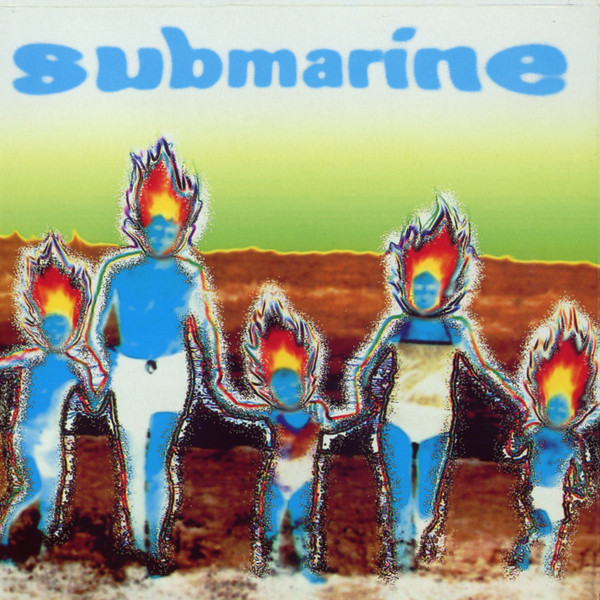
You worked with Keith Cleversley on Submarine’s first record, a man known for his work with the Flaming Lips. What did you take away from that experience, and how did it shape your future recordings?
Keith was in the same class as Dave Fridmann at Fredonia, and the first Mercury Rev album was their “submission” for their degrees in Music Production. I think that’s right.
Keith is a one-off. He thinks about music and sound in ways that most of us mortals will never consider or understand. He’s incredibly bright, exceptionally challenging to work with, and his musical bullshit detector is second to none. Keith taught me to LISTEN properly. Once you learn how to do that, you’ve got it forever, and you apply it to everything you do and everything you hear.
Submarine went on to tour with some huge bands—The Flaming Lips, Radiohead, Tool. What’s one memory from those tours that still stands out to you? Something that’s maybe a bit off the beaten path?
There’s obviously lots of stuff I can’t tell you about—ha ha. I wish I could though… some of it is magnificent.
When we got offered the Tool tour, none of us had even heard of them—even though ‘Undertow’ had sold, like, 5 million copies or something. They’d been touring the US with the Flaming Lips, and when they asked the Lips who they should bring on the European leg, the Lips said: Submarine. So we got the gig. We’d never played venues that big before. Some of the places were enormous.
There are a couple of things that really stuck…
Paul D’Amour was still playing bass (Justin joined after that tour, I think). Every night, Paul would stand at the side of the stage just before we went on and say:
“OK… big gig tonight, a lot of pressure, there’s a lot of people out there, man. Probably 3,000 or something. There’s press, there’s important record company people, there’s TV people… [long pause] …don’t fuck up.”
Then he’d just walk off.
The whole band would walk on laughing. Genius, really—it broke the intensity, the nerves. We’d just instantly relax.
Then halfway through the tour, Maynard turns up in our dressing room and goes, “Do you guys want an introduction?” He wanted to go on before us to intro the band. So we’re like, “Yeah, that’d be great.”
He walks out, and the place goes nuts thinking Tool’s about to start. And then he just lays into them. Tells the whole crowd to “shut the fuck up and listen to this band.” Says we’ve been on tour with them and they love us, and the audience are a bunch of assholes who need to start paying fucking attention to the music because their lives would be immeasurably improved if they did.
Then—no joke—someone jumps on stage, Maynard wrestles him to the ground, puts him in a hold, and sticks the mic up the guy’s arse.
We went down like a sack of shit… and the mic stank of…
You’ve always had this penchant for blending experimental rock with melodies. Was that something that you and the band consciously worked towards, or did it just come out naturally in your writing?
No, not at all. Whatever comes out, comes out. It’s natural.
I think loving proper pop music as much as everything else means you’re always paying attention to hooks—or potential hooks—even if they’re dissonant or angular. And everyone loves a good hook, don’t they?
Now, with Bad Generals, there’s a certain spontaneity in the music, yet it feels very refined. How do you manage the balance between chaos and control when you’re writing and recording with the project?
I suppose that’s really about structure—but also knowing when an ad-lib works, and keeping that if it adds something. It all goes back to the musical bullshit detector again. I try to only add things that enhance the overall feel of the tune. It needs to fit… or be so obviously not fitting that it fits. If that makes any sense—ha ha.
Sometimes I’ll just leave a bunch of bars blank and go for it.
The shift from Submarine to Jetboy DC was a pretty significant one. What motivated you to move in that new direction after Submarine’s disbandment? Was there something you felt needed to be explored creatively?
Jetboy DC was a balls-out rock & roll band, pretty much. I’d had enough of the slow, introspective, confessional thing. I wanted to play with another guitar player and do something more New York Dolls-y, Ramones-y. Something that kicked arse in a different way.
We had a drummer that swang, and I was writing these tunes with enormo fuck-off riffs. It was a great band. Coxon used to come and see us a lot. It’s the only time I’ve looked out from the stage and seen groups of girls singing along to the lyrics. Can’t argue with that!
Submarine were a band’s band. Jetboy DC was an everyone band.
Also, the most money I’ve ever earned from music was when Sky Sports used a couple of Jetboy DC tunes for their Premier League highlights reels. I didn’t see any of them because I don’t have Sky, but they’d never have used a Submarine tune—ha ha.
With ‘Krautrock TV,’ there’s a strong DIY ethos at play, which I imagine goes back to your early years in the indie scene. How do you view the current state of indie, especially with the rise of streaming and digital media?
I don’t know much about the current indie scene, to be honest—I’m out of the loop now. I do think it’s great that so many people are making music and able to put it out there. But finding the jewels is hard because there’s just so much of it.
To paraphrase David Thomas: “Everybody’s in a band. Mum and Dad on bass and drums.”
I’m lucky, though. I’ve got a bunch of mates and we’re always sending each other stuff. If one of us stumbles across something good, we send it around. That works. Beyond that, it’s relying on mags like yours and hoping someone on 6 Music has good taste.
You’ve mentioned before that Submarine’s second album was never really given its due when it was first made. What do you think has changed in the music world now that would allow that album to be appreciated by audiences who missed it in the ’90s?
Wow! What a question.
Weirdly, that record became a bit of a cult classic, I’m told. Because it wasn’t released at the time, people shared bootleg copies and it became a bit of a thing. It’s a good record. It’s all over the shop, but it’s a good record.
Some journo reviewed it and said it was “almost genius,” which I like very much!
It’s a myth that most people ever really listened to whole albums. Research done in the ’80s showed that on average, each album bought was listened to 1.6 times. Not in my house! I’ve got thousands of records and nearly all of them have been listened to a lot more than 1.6 times… but apparently I’m in the minority.
So arguably, streaming platforms give people what they want—the ability to play only the tune they want to hear and that’s it. But what that means is you miss out on tunes that are growers. I’ve got tons of albums I bought because I liked the single, played once and thought, “The rest of this is shit.” But then, because I kept playing them… “Oh, I like this tune too…” and eventually they became my favourite albums.
So maybe, because some of that second Submarine album is quite challenging, it’s more suited to being streamed? We’ll never know though, because it’s not on any streaming platforms! Ha ha. Some of it’s on YouTube, I think. Thank you, whoever did that.
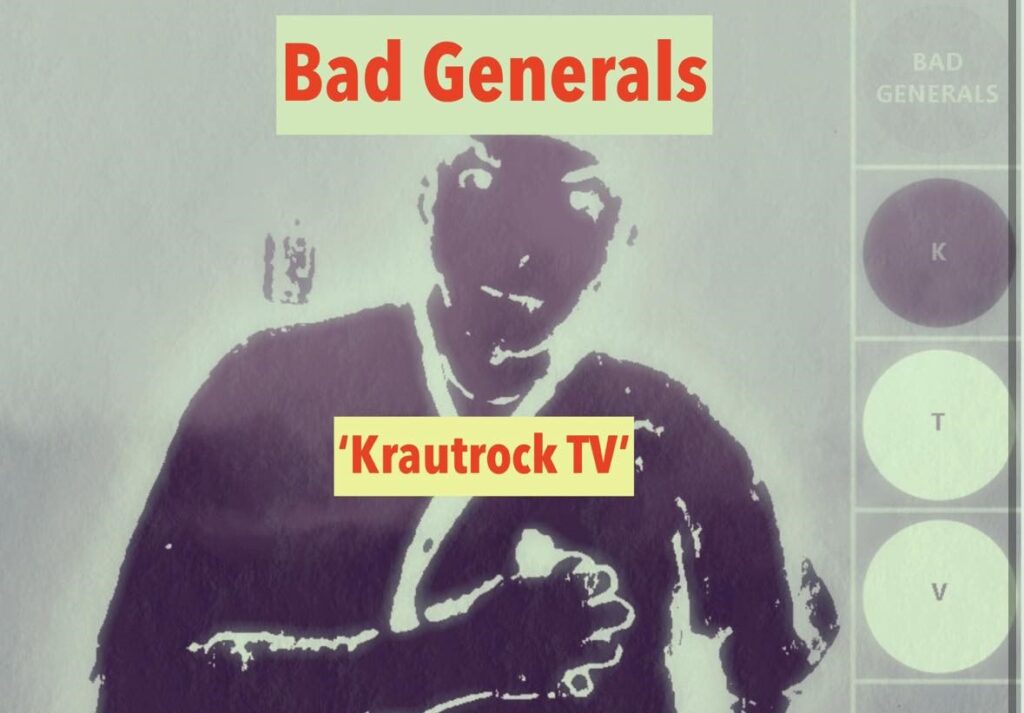
Finally, looking ahead—what’s next for you and Bad Generals? Is there a bigger picture behind the single Krautrock TV, or are you still enjoying the ride of creating and letting things unfold?
I’d like to keep putting things out as Bad Generals. I’ve got stuff I’d like to do, definitely, and some things already in the can. Bad Generals has no hard and fast rules. I’m choosing to call it Lo-Fi Experimental Shed Pop. It’ll be what it is. It could be 25 minutes of feedback and drones that get rid of your headache… maaan… or three and a half minutes of a Phil Spectory-sounding thing with a fuck-off pop chorus.
As long as it’s good, there’s no rules.
Klemen Breznikar
Jo Bartlett Official Website / Facebook / Instagram / Twitter / Bandcamp / YouTube

